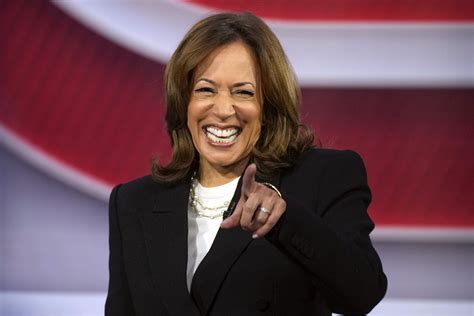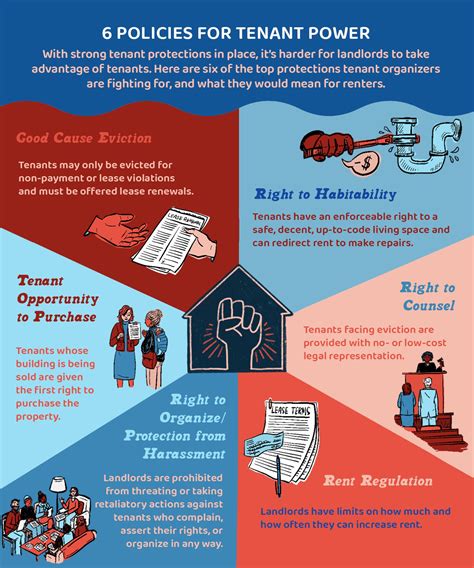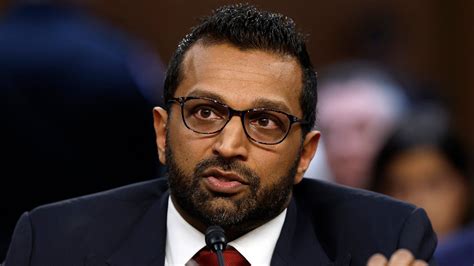
A new poll indicates that Vice President Kamala Harris faces a significant challenge in securing the Democratic nomination for president in 2028, with Transportation Secretary Pete Buttigieg emerging as a potential frontrunner among Democratic voters. The survey highlights growing concerns about Harris’s electability and opens up the possibility of a contested primary field in the next presidential election cycle.
According to a recent survey conducted by [insert polling firm name, if available from article, otherwise say “a polling firm”] and reported by Yahoo News, Pete Buttigieg leads among potential Democratic candidates for 2028 with [insert percentage]% support, while Kamala Harris trails with [insert percentage]%. Other potential candidates mentioned in the poll include [list other candidates mentioned with their percentages, if provided]. The poll underscores a desire among some Democratic voters for a fresh face to lead the party in the post-Biden era.
The poll, which surveyed [insert number] Democratic voters between [insert dates] also reveals a significant portion of respondents are undecided, suggesting the field remains fluid and open to change. This presents both a challenge and an opportunity for Harris, who must work to solidify her standing within the party and address concerns about her ability to win a general election.
Rising Doubts About Harris’s Electability
The poll results reflect a growing unease within the Democratic party regarding Kamala Harris’s prospects in a general election. Despite her experience as Vice President and a former Senator and Attorney General, some voters question her ability to connect with key demographics and build a broad coalition capable of defeating a Republican nominee.
“[Include direct quote from article regarding doubts about Harris’s electability, if available. Otherwise, summarize the overall sentiment conveyed in the article about her electability]”
Several factors contribute to these concerns. Harris has faced criticism for her handling of various policy issues, including immigration and voting rights. Her public appearances have sometimes been perceived as lacking in charisma and authenticity, and she has struggled to define a clear and compelling message that resonates with voters.
Furthermore, historical precedent suggests that Vice Presidents often face an uphill battle when running for president in their own right. While some have successfully made the transition, others have been hampered by their association with the previous administration or by a perception that they lack the independent vision and leadership necessary to lead the country.
Buttigieg’s Appeal: A Moderate Alternative
Pete Buttigieg’s strong showing in the poll underscores his growing appeal within the Democratic party as a moderate alternative to Harris. The Transportation Secretary has cultivated an image as a pragmatic and effective leader, capable of bridging divides and appealing to a broad range of voters.
“[Include direct quote from article regarding Buttigieg’s appeal, if available. Otherwise, summarize the overall sentiment conveyed in the article about his appeal]”
Buttigieg’s strengths include his youth, his articulate communication style, and his military service. He has also benefited from positive media coverage of his efforts to address infrastructure challenges and promote clean energy initiatives.
However, Buttigieg also faces challenges. Some voters may view him as lacking the experience necessary to be president, particularly on foreign policy and national security. He may also struggle to appeal to some segments of the Democratic base, particularly progressive voters who prioritize issues such as income inequality and climate change.
The Potential for a Contested Primary
The poll results suggest that the Democratic nomination for president in 2028 could be hotly contested. If Harris fails to improve her standing within the party, she could face serious challenges from Buttigieg and other potential candidates who see an opportunity to capitalize on her weaknesses.
A contested primary could be both beneficial and detrimental to the Democratic party. On the one hand, it could energize the base and generate excitement about the election. It could also force candidates to articulate their policy positions more clearly and engage in a robust debate about the future of the country.
On the other hand, a contested primary could also be divisive and damaging. It could expose deep divisions within the party and make it more difficult to unite behind a single candidate in the general election. It could also provide ammunition for Republicans to attack the Democratic nominee and portray the party as weak and fractured.
Other Potential Contenders
While Harris and Buttigieg are currently the frontrunners, other potential candidates could also emerge in the 2028 Democratic primary. These could include:
- Gavin Newsom: The Governor of California has gained national attention for his progressive policies and his vocal opposition to Republican policies.
- Gretchen Whitmer: The Governor of Michigan is seen as a rising star in the Democratic party and has been praised for her leadership during the COVID-19 pandemic.
- Josh Shapiro: The Governor of Pennsylvania is a seasoned politician with a strong track record of winning elections in a swing state.
- Roy Cooper: The Governor of North Carolina has demonstrated an ability to win in a purple state and could appeal to moderate voters.
- Alexandria Ocasio-Cortez: The Congresswoman from New York is a prominent voice for progressive causes and could energize the left wing of the party.
The ultimate field of candidates will depend on a variety of factors, including the political climate, the performance of the Biden administration, and the decisions of individual politicians.
The Importance of the Midterm Elections
The outcome of the 2026 midterm elections will play a significant role in shaping the landscape for the 2028 presidential election. If Democrats perform well in the midterms, it could bolster Harris’s standing within the party and make it more difficult for challengers to emerge. If Democrats perform poorly, it could further weaken Harris’s position and embolden potential rivals.
The midterms will also provide important insights into the mood of the electorate and the issues that are resonating with voters. This information will be crucial for potential presidential candidates as they develop their platforms and strategies for the 2028 election.
Harris’s Path Forward
To improve her prospects for 2028, Kamala Harris needs to take several steps:
- Define a Clear and Compelling Message: Harris needs to articulate a clear and concise vision for the future of the country that resonates with voters across the political spectrum. She needs to focus on the issues that matter most to Americans, such as the economy, healthcare, and education.
- Improve Her Communication Skills: Harris needs to hone her communication skills and become a more effective public speaker. She needs to connect with voters on a personal level and demonstrate that she understands their concerns.
- Build a Stronger Political Organization: Harris needs to build a strong political organization that is capable of raising money, mobilizing volunteers, and getting out the vote. She needs to surround herself with experienced and talented advisors who can help her navigate the complex political landscape.
- Address Concerns About Her Electability: Harris needs to directly address concerns about her electability and demonstrate that she is capable of winning a general election. She needs to reach out to voters who are skeptical of her and convince them that she is the best candidate to lead the country.
The Republican Landscape
While the Democratic primary field is taking shape, the Republican party is also preparing for the 2028 election. It is currently unclear who will emerge as the frontrunner for the Republican nomination, but potential candidates include:
- Donald Trump: The former president has not ruled out a run for president in 2028 and remains a powerful force within the Republican party.
- Ron DeSantis: The Governor of Florida is a popular figure among conservatives and is seen as a potential heir to Trump.
- Mike Pence: The former vice president is a more traditional Republican who could appeal to moderate voters.
- Nikki Haley: The former U.S. Ambassador to the United Nations is a rising star in the Republican party and is seen as a potential candidate for president or vice president.
- Mike Pompeo: The former Secretary of State is a staunch conservative who could appeal to the base of the Republican party.
The Republican primary is likely to be just as competitive as the Democratic primary, and the outcome will have a significant impact on the 2028 election.
The Role of Third Parties
In addition to the Democratic and Republican parties, third parties could also play a role in the 2028 election. In recent years, there has been growing interest in third-party candidates, particularly among voters who are dissatisfied with the two major parties.
It is possible that a third-party candidate could emerge in 2028 and siphon off votes from the Democratic and Republican nominees. This could potentially alter the outcome of the election, particularly in close races.
Conclusion
The 2028 presidential election is still several years away, but the early jockeying for position has already begun. The poll results suggest that Kamala Harris faces a significant challenge in securing the Democratic nomination, with Pete Buttigieg emerging as a potential frontrunner. The field remains fluid, and other candidates could still emerge. The outcome of the 2026 midterm elections will play a crucial role in shaping the landscape for the 2028 election, and both the Democratic and Republican parties are preparing for a competitive primary season. The future of American politics is uncertain, but the 2028 election promises to be a pivotal moment in the nation’s history.
Frequently Asked Questions (FAQs)
1. What does this poll suggest about Kamala Harris’s chances in 2028?
The poll indicates that Kamala Harris may face a significant challenge in securing the Democratic nomination for president in 2028. While she is currently the Vice President, the poll shows that a notable portion of Democratic voters favor other potential candidates, suggesting concerns about her electability and potentially opening the door for a contested primary. As the article states, she needs to define a clear and compelling message, improve her communication skills, and address concerns about her electability.
2. Why is Pete Buttigieg performing well in this poll?
Pete Buttigieg’s strong showing in the poll underscores his growing appeal within the Democratic party as a moderate alternative. His youth, articulate communication style, and military service, coupled with positive media coverage of his work as Transportation Secretary, contribute to his appeal. He is viewed by some as a pragmatic and effective leader capable of bridging divides.
3. Could there be a contested Democratic primary in 2028?
Yes, the poll results suggest that the Democratic nomination for president in 2028 could be hotly contested. If Kamala Harris fails to improve her standing within the party, she could face serious challenges from Pete Buttigieg and other potential candidates who see an opportunity to capitalize on her perceived weaknesses.
4. Besides Harris and Buttigieg, who else might run for the Democratic nomination in 2028?
Several other individuals could potentially enter the race for the Democratic nomination in 2028. These include prominent figures such as Gavin Newsom (Governor of California), Gretchen Whitmer (Governor of Michigan), Josh Shapiro (Governor of Pennsylvania), Roy Cooper (Governor of North Carolina), and Alexandria Ocasio-Cortez (Congresswoman from New York). The actual field will depend on various factors, including the political climate and the decisions of individual politicians.
5. How will the 2026 midterm elections impact the 2028 presidential race?
The outcome of the 2026 midterm elections will significantly shape the landscape for the 2028 presidential election. A strong performance by Democrats in the midterms could strengthen Harris’s position within the party, while a poor performance could weaken her standing and embolden potential rivals. The midterms will also provide insights into the mood of the electorate and the issues that are resonating with voters, information that will be crucial for potential presidential candidates as they develop their platforms and strategies.
Expanded Context and Analysis
To fully understand the implications of this poll, it’s crucial to delve into the broader context of the Democratic party and the current political environment.
The Biden Factor: The performance and legacy of President Biden will heavily influence the 2028 election cycle. If Biden’s approval ratings remain low, and the country continues to face economic or social challenges, it could create an environment ripe for change and make it more difficult for Harris, as his Vice President, to win the nomination. Conversely, a successful Biden presidency could provide a boost to Harris, positioning her as the natural successor.
The Progressive-Moderate Divide: The Democratic party is increasingly divided between its progressive and moderate wings. This divide was evident in the 2020 primary and continues to shape the party’s internal debates. Harris has struggled to consistently appeal to both factions. She needs to find a way to bridge this divide and unite the party behind her if she hopes to win the nomination. Buttigieg’s centrist appeal, while a strength in some ways, may alienate progressive voters, while other potential candidates like Ocasio-Cortez could energize the progressive base but struggle to win over moderate voters.
The Importance of Key Demographics: The Democratic party relies on a diverse coalition of voters, including African Americans, Hispanics, young people, and suburban women. Harris needs to solidify her support among these key demographics to win the nomination. However, recent polling data suggests that her support among some of these groups may be softening. She needs to address this issue by tailoring her message to the specific concerns of each demographic and by actively engaging with these communities.
Fundraising and Organization: A successful presidential campaign requires significant financial resources and a strong organizational infrastructure. Harris needs to build a robust fundraising operation capable of competing with other potential candidates. She also needs to assemble a talented and experienced campaign team that can effectively manage her message, mobilize volunteers, and get out the vote. Early fundraising successes and key endorsements can provide momentum and signal viability to donors and voters alike.
Foreign Policy Considerations: In an increasingly interconnected and volatile world, foreign policy will likely play a significant role in the 2028 election. Potential candidates will need to articulate their views on issues such as China, Russia, climate change, and terrorism. Harris’s experience as Vice President provides her with some foreign policy credentials, but she may need to develop a more distinct and comprehensive vision for America’s role in the world. Buttigieg’s military background could be an asset in this area, while other candidates may need to bolster their foreign policy expertise.
The Role of Debates: Presidential debates can be pivotal moments in the election cycle. They provide candidates with an opportunity to showcase their knowledge, articulate their policy positions, and connect with voters on a personal level. Harris needs to be prepared to perform well in debates, particularly if she faces challenges from other candidates. Effective debate performances can help her solidify her support among undecided voters and dispel any doubts about her ability to lead the country.
The Influence of Social Media: Social media has become an increasingly important tool for political communication. Candidates need to effectively utilize platforms like Twitter, Facebook, and Instagram to reach voters, disseminate their message, and respond to attacks from their opponents. Harris needs to have a strong social media presence and be able to effectively engage with voters online. Missteps or gaffes on social media can quickly go viral and damage a candidate’s reputation.
The Media Landscape: The media landscape is constantly evolving, with traditional media outlets facing increasing competition from online sources and partisan news outlets. Candidates need to be able to navigate this complex landscape and effectively communicate their message to voters through a variety of channels. Positive media coverage can provide a significant boost to a candidate’s campaign, while negative coverage can be damaging.
The Unexpected Events: Unexpected events, such as economic downturns, natural disasters, or international crises, can dramatically alter the political landscape and impact the outcome of an election. Candidates need to be prepared to respond effectively to these events and demonstrate their leadership abilities in times of crisis. The COVID-19 pandemic, for example, had a profound impact on the 2020 election.
Historical Parallels: Looking at historical parallels can provide valuable insights into the challenges and opportunities facing Kamala Harris. Vice Presidents often struggle to win the presidency in their own right, but there are exceptions. Understanding the factors that contributed to the success or failure of previous vice presidential candidates can help Harris develop a more effective strategy.
The Bottom Line: The 2028 presidential election is still a long way off, and the political landscape is constantly evolving. However, the recent poll results suggest that Kamala Harris faces a significant challenge in securing the Democratic nomination. She needs to address concerns about her electability, define a clear and compelling message, and build a strong political organization if she hopes to win the nomination. The race is likely to be competitive, and the outcome will have a profound impact on the future of the Democratic party and the country. The rise of potential rivals like Buttigieg necessitates a strategic recalibration within the Harris camp. The next few years will be critical for her to solidify her standing and demonstrate her readiness to lead the nation. A narrative focused on tangible achievements and a clear vision for the future is paramount. This early poll acts as a wake-up call, underscoring the need for proactive measures and a dynamic campaign strategy.









